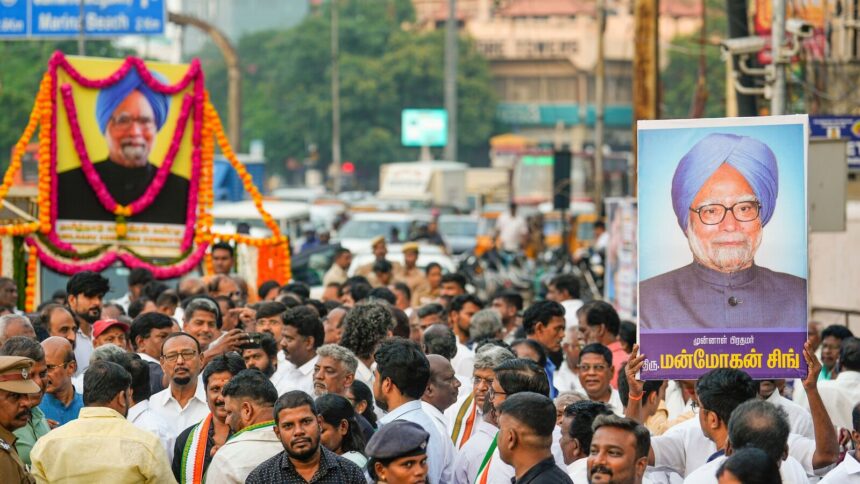Tribute to a Legacy: Naming a College After Manmohan Singh
In an appeal that resonates deeply within the academic and political arena of India, the National Students’ Union of India (NSUI) has reached out to Prime Minister Narendra Modi with a poignant request: to name an upcoming college in Delhi University’s system after former Prime Minister Manmohan Singh, instead of the controversial figure, Veer Savarkar. This letter comes at a time when Singh’s passing on December 27, 2022, has left a significant impact on Indian politics and public life.
A College with a Purpose
The foundation stone for the college is set to be laid by PM Modi in Roshanpura, Najafgarh, with the institution being designed to boast modern educational facilities and an academic block in East Delhi, as well as one in Dwarka. As the focus shifts towards building a future-ready education system, the NSUI’s plea accentuates the importance of selecting names that embody values of inclusivity, progress, and meritocracy — ideals strongly associated with Manmohan Singh’s legacy.
The Significance of Manmohan Singh
Manmohan Singh is widely regarded as one of the architects of modern India’s economic policies. His tenure as Finance Minister in the early 1990s witnessed landmark reforms that liberalized the Indian economy, allowing it to integrate into the global market. Subsequently, as Prime Minister from 2004 to 2014, Singh’s leadership was marked by stability, growth, and a commitment to social welfare. His academic background as an economist and his leadership in establishing institutions such as Indian Institutes of Technology (IITs) and Indian Institutes of Management (IIMs) further underscore his contributions to the education sector.
The NSUI has highlighted that naming a premier educational institution after Singh would not merely be an act of homage but a way to inspire future generations through his ideals of resilience, merit, and dedication to public service. Acknowledging Singh’s work in enhancing the Indian educational landscape and promoting skill development can serve as a guiding light for the younger generation.
Historical Context: The Veer Savarkar Debate
The controversy surrounding the naming of the college comes into sharp focus against the backdrop of Savarkar’s complex legacy. A key figure in the Hindutva movement, Savarkar’s views and writings have sparked considerable debate in contemporary India, particularly amongst political and social ideologies. While he is revered by many within the Bharatiya Janata Party (BJP) as a staunch nationalist, others criticize his role in India’s independence struggle, emphasizing the divisive nature of his ideology.
Call for Recognition
In his letter, NSUI national president Varun Choudhary eloquently articulated the need to honor Singh’s legacy by establishing a curriculum that includes his life journey—from his student days post-partition to his emergence as a global figure—thereby solidifying his place in the nation’s educational narrative. The NSUI has requested the formation of a central university named after Singh, alongside a thorough integration of his achievements and philosophies into academic curricula.
The letter emphasizes that the recognition of Singh’s contributions should not be delayed and urges the government to take immediate action. This includes re-evaluating the significance of educational institutions and ensuring they reflect the values most relevant to India’s future.
Conclusion: Preserving the Legacy
As the nation reflects on the complex mosaic of its history, the impending decision regarding the naming of institutions will undoubtedly play a crucial role in shaping the discourse surrounding India’s identity. The NSUI’s advocacy for honoring Manmohan Singh serves as a powerful reminder of the profound impact that educational policies and figures can have on society. In choosing names that resonate with ideals of progress and unity, India can pave the way for more inclusive and forward-thinking generations.
In an era marked by rapid change, reaffirming the values epitomized by leaders like Manmohan Singh can lay a solid foundation for a future fueled by education, innovation, and social harmony. The forthcoming decision will not only reflect the current political landscape but will also influence how future generations perceive their heritage and aspirations.









